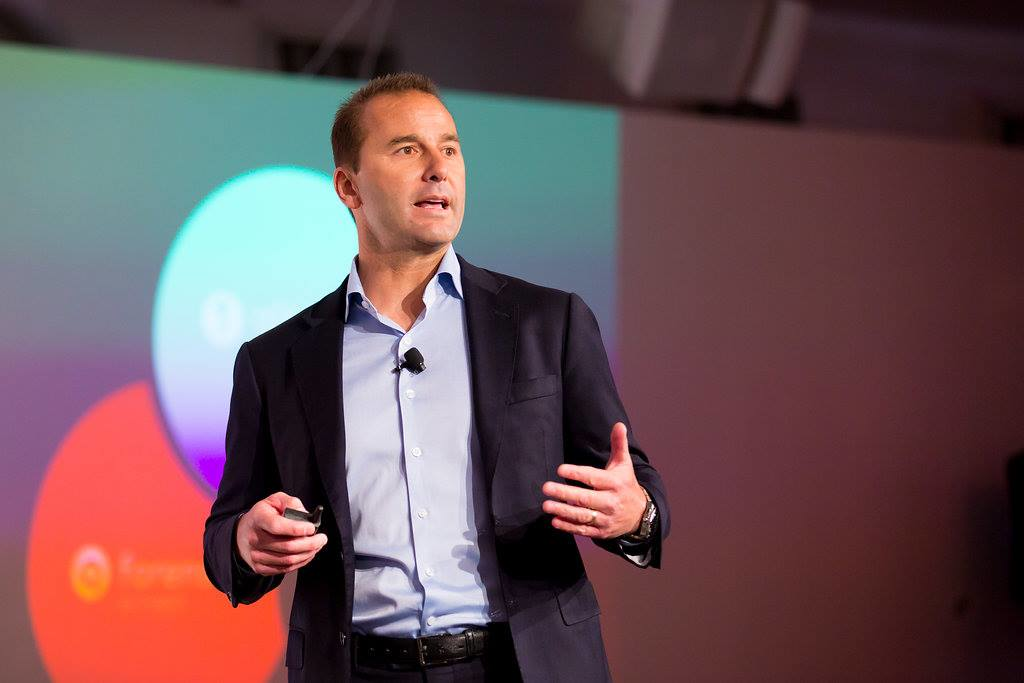Advertising and communications are generally considered part of a business’s overall marketing plan. Rooted in affiliate marketing, the catch-all concept of performance partnerships today seeks to grow businesses in an ever more diverse set of arrangements whose end results – more customers, increased revenue – accomplish what marketing and sales departments have always been tasked with. Technology platforms like Impact help discover, manage and track these partnerships, and using such a platform enables a business to increase their number of substantial partners.
The research-backed language that Impact uses to describe the future of partnerships is certainly attention-getting. For marketers familiar with the evolving relationships between publishers and advertisers, for just one example, they will find some overlap. So when, in a compelling keynote at last week’s Impact Growth conference, Impact CEO David Yovanno predicted that partnerships will bring an end to marketing and sales departments, there was some understanding from those there, those who follow advertising at least, that Yovanno is challenging businesses to think differently with provocative language.
The thrust of Yovanno’s message about partnerships rings true, with support from a Forrester study sponsored by Impact, “Invest in Partnerships to Drive Growth and Competitive Advantage.” Yovanno described the essence of a partnership to attendees at the day-long Tribeca event: a business discovers another player in their industry (or a related industry) with an audience that’s valuable to that business, and an agreement is reached on how to connect the business with that new audience. Multiple talks at Impact Growth dealt with influencers and that maturing market. An influencer who’s paid by a brand to produce content related to a specific product acts like a publisher in this regard. A traditional advertiser pays for exposure to the publisher’s audience, like the influencers who post content for their followers. However, within the context of a partnership, the same brand could set terms for paying influencers, or publishing partners, based on results – actual metrics like sales or app downloads. Either way, this isn’t necessarily something that can be done over a simple programmatic DSP. To deliver performance and develop business materially, instead of just brand awareness, a robust partnership must be formed.
Automating this process makes it easier to scale and drive growth. As a result, for example, computer maker Lenovo has increased their partnerships to roughly twice the magnitude as the norm in other companies, according to Priest Willis, Sr., who serves as Senior Manager, Global Partnerships Marketing for Lenovo. Using a data management platform (DMP), he can take anonymized customer data and find other prospective partners with a similar audience. Even as we spoke at Impact Growth, Priest told me Lenovo was in direct negotiations with a top-tier pro athlete. Customer data and clear attribution cuts out the need for a complicated chain of agents, representatives and internal personnel. Willis told me, “I see these new kinds of partnerships as another stage in the evolution of affiliate marketing, where influencers are one of the tentacles. We can reach out directly and just plug the influencer into the system without all these other steps.”
Specific solutions in the Impact Partnership Cloud manage each stage of partnership. Mediarails allows businesses to discover potential new partners, while Radius enables them to contact partners directly. Altitude aids in optimizing the partnerships and adding efficiency. Forensiq, focused on attribution, helps eliminate fraud. Impact’s GM, Partnership Cloud Mike Head explained to me, “Clients need a platform so they don’t have to rely on their own technology team. The Partnership Cloud allows them to activate that partnership and see results in a short amount of time.” He added that the Impact platform manages every stage in the partnership lifecycle, for instance, allowing clients “to construct emails that take the partner all the way through the funnel with different cadences.”
An Impact partner themselves, PartnerCentric is an agency that provides full-service management (the services side) for performance partnerships. VP, Strategic Initiatives Tom Rathbone said that with the baseline technology developed by Impact, PartnerCentric can also work with them to tailor the tech, “to provide commission logic for publishers, based on customizable metrics. We can act on behalf of our partner, instead of on a flat percentage of sales, which allows us to align [the client’s] spend and channel with value on a sale-by-sale basis.” Rathbone contends that siloed data and tracking from separate parties in the partnership has always been a pain point in the industry, holding it back. “With that close a relationship, where spend and results are directly tied to attribution, the partnership becomes more interesting, and it opens doors for what a channel can do for the partner, making it performance-based,” he stated.
Rathbone is less interested in drawing distinctions between publishers and influencers. “The mechanisms are so similar,” he said. “You want new customer acquisition and at a reasonable cost basis. Influencers are now.understanding how to do this. Their turning into professional marketers as well.”
He’s also less interested in the talk about the end of marketing and sales. “What I’m looking for is a pickup in the industry, and the conversation around that,” he explained. “How can you take the strength of these one-to-one relationships with influencers and their audience? Traditionally, that takes a lot of work, so how can we do that in new ways? After talking about that and trying to make it happen, it seems like it’s finally mainstreaming. With the lack of trust brands are having in marketing endpoints like Facebook and Google, there’s a desire for more trustworthy, authentic engagement.”
As more businesses see the potential value in partnerships, the tech that supports it will also see more opportunities. From the Forrester study, which surveyed 454 companies, 52 percent said they get more than 20 percent of their revenue from the partnership channel, with 77 percent of companies prioritizing the development of this channel as a key initiative in 2019. The study concludes: “the importance of partnerships will only continue to rise.”







